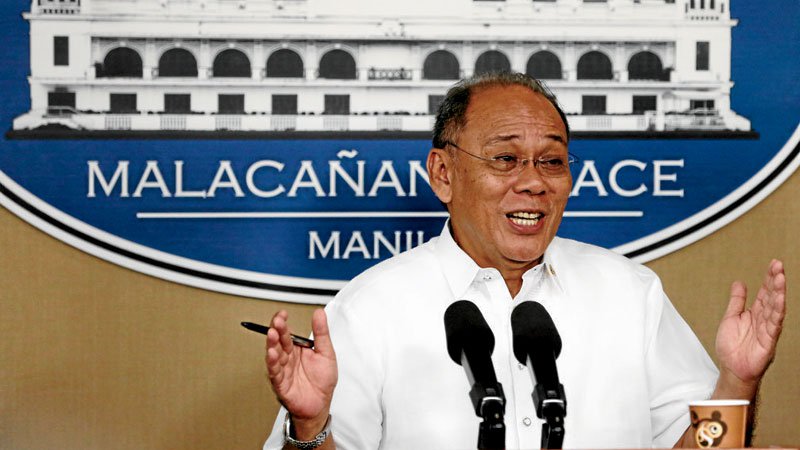Malacañang on Friday night said President Rodrigo Duterte’s declaration of “separation” from the United States did not mean the Philippines would drop treaties and agreements with its allies.
Presidential spokesperson Ernesto Abella said Mr. Duterte’s comments were a “restatement of his position on charting an independent foreign policy.”
Mr. Duterte wants to reduce the Philippines’ dependence on the United States and other Western countries and rebalance economic and military relations with its neighbors, Abella said in a statement.
“This is not an intent to renege on our treaties and agreements with our established allies but an assertion that we are an independent and sovereign nation, now finding common ground with friendly neighbors with shared aspirations in the spirit of mutual respect, support and cooperation,” he said.
Mr. Duterte’s declaration, made in comments to Chinese and Filipino businessmen during a state visit to China on Thursday, sent government officials scrambling for explanation, with some of them contradicting the President, who frequently makes statements without consulting his Cabinet officials.
Earlier on Friday, Malacañang could not explain Mr. Duterte’s remarks, with Assistant Presidential Communications Secretary Ana Marie Banaag saying the Palace was “in no rush” to “interpret” the President’s statement.
“We have to wait for guidelines that would be coming from him, from the [Department of Foreign Affairs] as soon as they come back,” Banaag told reporters.
The public should not speculate, she said.
Mr. Duterte was expected to arrive from Beijing later Friday night.
Trade continues
Trade Secretary Ramon Lopez on Friday said the Philippines would maintain its trade and economic ties with the United States.
“The President did not talk about separation. In terms of economic, we are not stopping trade, investments with America,” Lopez told CNN Philippines in Beijing, where he was accompanying Mr. Duterte.
Lopez said Mr. Duterte’s visit to China was “seen as a symbol of renewing an old friendship.”
He said Mr. Duterte’s trip to China drew $13.5 billion in investment and financing deals expected to generate 2 million jobs in industries, manufacturing, agribusiness, trade, finance, tourism, telecommunication, transportation, ecozones, industrial parks and infrastructure in the next five years.
Impact on economy
Bangko Sentral ng Pilipinas Deputy Governor Diwa Guinigundo said it was “too early and too premature” to speak about the impact of Mr. Duterte’s declaration.
“We don’t have the benefit of the policy translation of those pronouncements of the President in China. Those are pronouncements he made. How it’s going to be translated into policies is something else. I think we should wait until the President comes back, meets the Cabinet and comes down to translating those pronouncements into actual policy,” Guinigundo told reporters on Friday.
“The US and the Philippines have a long history of economic and military ties. How the pronouncements of the President will impact on [these] ties will have to wait until the government is able to provide us with greater detail on how this is going to be done in terms of policies,” he said.
Easing fears of the impact of Mr. Duterte’s comments on the Philippine economy, Guinigundo said “our macroeconomic fundamentals continue to be a great support to any of the uncertainties in the market.”
“Our sources of economic growth have been diversified in terms of external trade. Domestic demand—consumption, private spending and public investment—remains [the] main growth leg,” he said.
“Intra-Asian trade has been expanded throughout the years, and more and more nontraditional markets have been tapped and more and more free trade agreements have been signed by the Philippines either by itself or with other [Southeast Asian] countries,” he said.
Technical Education and Skills Development Authority Director General Guiling Mamondiong also tried to ease fears that Mr. Duterte’s declaration would have an adverse effect on the information technology and business process outsourcing sector of the economy.
“In my view, labor force is not affected by foreign relations,” Mamondiong told reporters.
“Our workers who are now at the call centers are needed by the US. Regardless of what happens [in our relations with the United States], I don’t think this is going to affect the labor force in our country,” he said. —WITH REPORTS FROM BERNADETTE D. NICOLAS, BEN O. DE VERA, JOVIC YEE


